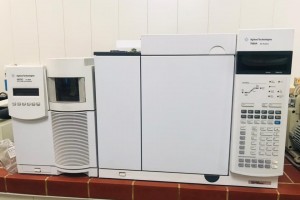

The College of Education for Pure Sciences in the Department of Biology Sciences at Basra University discussed a master's thesis entitled (Determining the effect of gasoline fuel vapors on the functions of the immune mucous membranes and defense proteins of workers at fuel filling stations) and included the message presented by the researcher (Muhammad Adnan Muhammad Omar) in view of the increasing spread of filling stations Fuel in the recent period in Basra Governorate and because of its role in air pollution resulting from the emission of fumes in the process of filling and transporting tanks, as well as the fumes from vehicle exhaust that workers inhale while they are in those stations, the vast majority of workers in those stations suffer from allergies and bleeding Gums and shortness of breath, and the majority of them suffer from headaches, especially in the late hours of work. The aim of this study is to identify this vital dilemma and analyze it to scientifically demonstrate its side effects.
The current study concluded that: -
1- Working for a long time in filling stations leads to health problems for workers and causes symptoms of headache and bleeding gums, in addition to an increase in bronchial sensitivity and asthma.
2- Exposure of workers to fuel vapors affects the level of IgE and IgA antibodies, which have a relationship with increasing mucous membranes, allergies and asthma.
3- Increased stress and headache for workers causes a high level of alpha amylase.
4- Increase in gum bleeding among workers as a result of low level Lysozyme, Lactoferrin
The current study recommends: -
1- Measuring many other immunological parameters for workers in fuel filling stations or workers in tank filling stations, being the most exposed group
2- Using other diagnostic methods such as urine, nasal swabs, tears, and semen to determine the level of some secretory and physiological parameters
3- Activating programs to periodically visit and inspect workers at filling stations and provide safety instructions and ways to prevent the risks of inhaling fuel vapors
4- Improving fuel quality due to its effects on engines, the environment, and people exposed to the products of evaporation and combustion
5- Taking into consideration the areas, locations and preparation of the stations in accordance with what is internationally applicable to reduce the fumes emitted from those stations in
Cities and residential areas.







